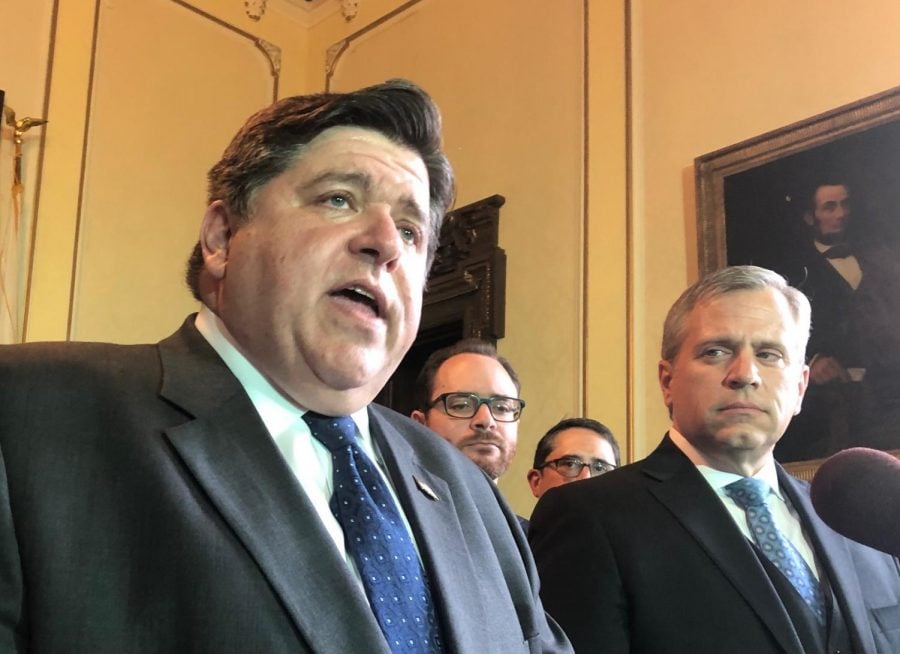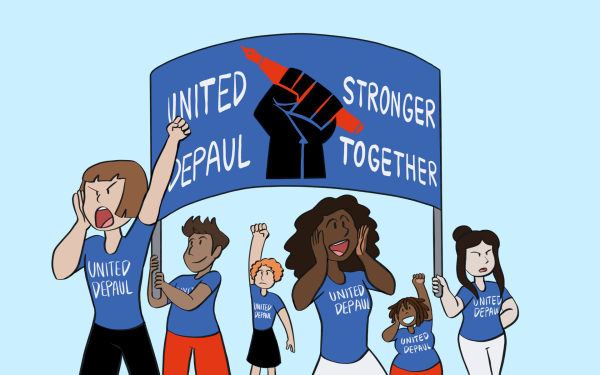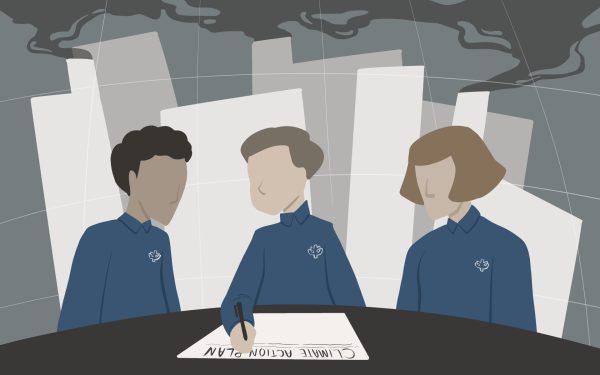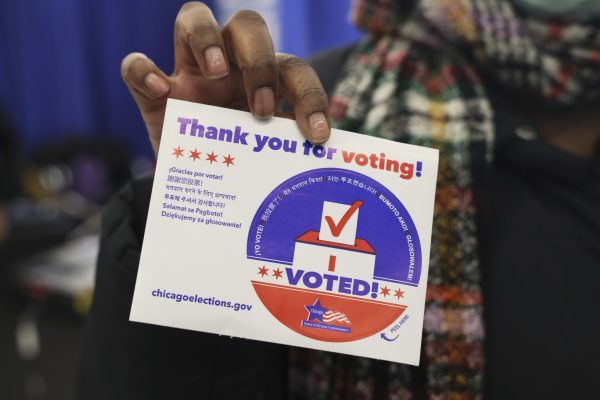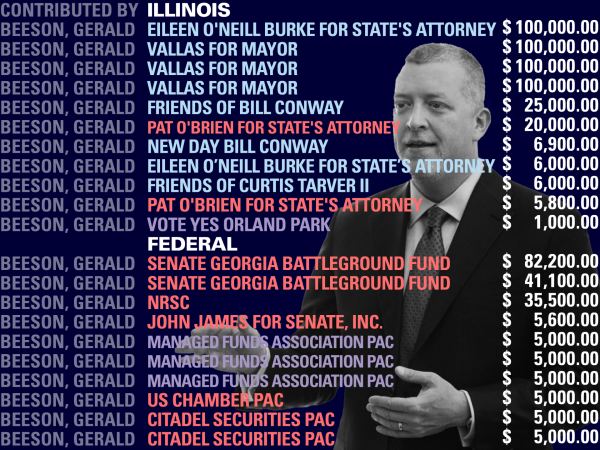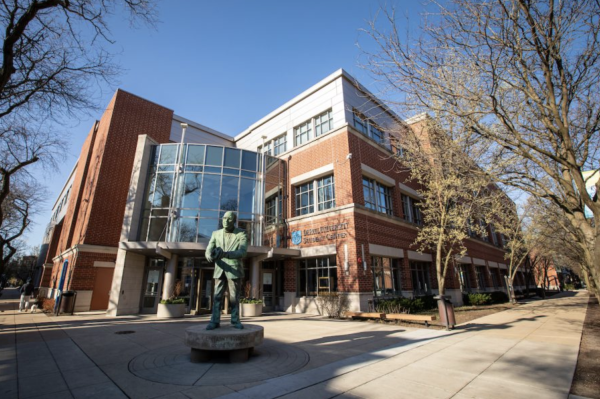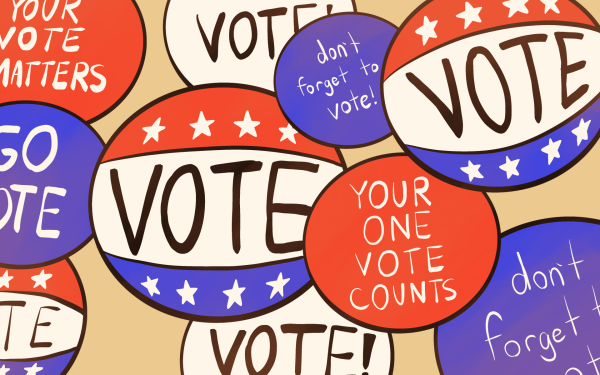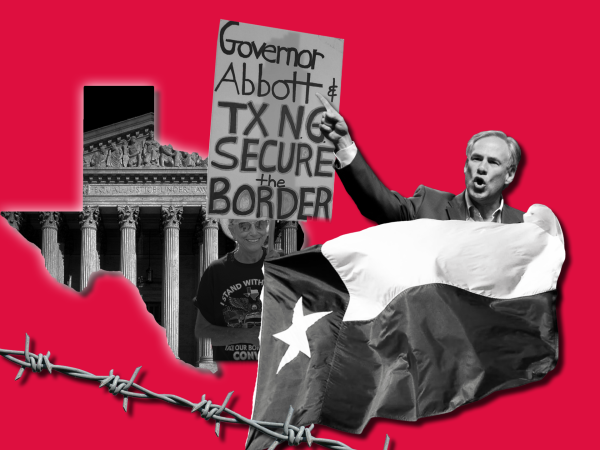Illinois House OKs tax rates for proposed graduated scale
Democratic Gov. J.B. Pritzker, left, discusses the House action to put a constitutional amendment to implement Pritzker’s graduated income tax on the November 2020 ballot in Springfield, Ill., Monday, May 27, 2019. Voters decide whether to eliminate Illinois’ flat-rate tax system which critics claim is regressive. Rep. Robert Marwick, D-Chicago, the sponsor of the amendment which underwent nearly 3 ½ hours of debate on the House floor, looks on.
SPRINGFIELD, Ill. (AP) — Democrats who control the Illinois House on Thursday approved tiered income-tax rates that would take effect if voters opt for revamping state taxation to hit higher incomes harder, a plan they say is aimed at attacking the state’s crippling debt.
The 67-48 vote followed blistering criticism from Republicans. They claimed it’s not the ticket to financial stability that Democratic Gov. J.B. Pritzker promises, but to runaway government spending.
The vote came on the next-to-last day of the General Assembly’s spring session and finalized a Pritzker campaign centerpiece. The plan would replace the current 4.95% flat rate with a progressive scale topping out at 7.99% for the wealthiest residents of Illinois.
The overhaul would raise $3.4 billion in new annual revenue, according to Pritzker. It would take effect in 2021 only if voters in next year’s election approve an amendment to the state constitution, which currently stipulates that income be taxed at a flat rate.
“This rate structure would raise the appropriate amount of revenue to pay our bills … and set the state on a more stable financial course,” said Rep. Michael Zalewski, a Riverside Democrat who sponsored the plan. Minor changes the House made in the measure need an OK from the Senate, which planned to consider them Thursday night.
Thursday’s vote was on what rates would apply to the scale if voters choose change. Starting at 4.75% for incomes up to $10,000 , they jump significantly to 7.75% over $250,000 and top out at 7.99% for single filers earning more than $750,000. The corporate rate would increase from 7% to 7.99%.
Pritzker’s mantra for advocating the plan is that 97% of Illinoisans would pay no more in taxes because those earning less than $250,000 would be taxed, at most, at the 4.95% rate. The rates would take effect in 2021 with if voters approve amending the constitution.
Republicans don’t believe the largesse will pay down debt.
“Here we go again: Taxes, taxes and more taxes,” said Rep. David McSweeney, a Barrington Hills Republican. “The middle class is going to suffer. This is a Trojan horse. We all know this is being used to sell the voters on falsehoods. … Stop the madness. Vote no.”
Illinois is awash in debt associated with years of skipping required pension contributions, overspending, a 2015-17 budget dispute that has resulted in $15 billion associated with past-due bills, and rising costs which existing revenue can’t catch. Pritzker claims the alternatives include devastating spending cuts or stratospheric hikes in the flat-tax rate.
“We will stabilize Illinois’ finances,” Pritzker said in a statement following the vote. “Opponents should be honest that they offer bad options — either cutting schools and public safety to the bone, or raising taxes on everyone by 20%. Instead, I stand firmly on the side of working families and fairness.”
But differing rates based on income would merely encourage Democrats to increase spending and cover it with hiked taxes at the highest levels with no solution to the mess, said GOP Rep. Margo McDermed of Mokena.
“It’s always easy to increase taxes on higher earners and not on the lower earners,” McDermed said. “The temptation to do that is increased by the fact that we haven’t addressed a single one of the drivers of our expenses, not one, not pensions, not Medicaid, not salaries, and not the increases in the latest budget.”
Business interests say taxing the wealthy will simply drive them from the state, leaving those with incomes insufficient to produce necessary revenue. And they say that it will hurt job-creating small businesses because their profits are counted as individual income. Zalewski said that 95 percent of small businesses have incomes under the $250,000 threshold.
“When people get a great idea that they think they’re going to make a million bucks a year, they don’t consider for a minute, that ‘Oh my God, I’m not going to start my company because someday when I make that, I’ll take home'” less, Arlington Heights Democratic Rep. Mark Walker said. “It is not a disincentive to entrepreneurs, and it is not counter to the American Dream.”
Pritzker’s plan includes a 20% increase in the property tax credit available to residents of the state with the nation’s next-to-highest property taxes, but both Democrats and Republicans complained Pritzker wasn’t doing enough to relieve the burden. That prompted the governor to announce on Tuesday a study to find ways to relieve the property-tax burden.
The bill is SB687: www.ilga.gov


